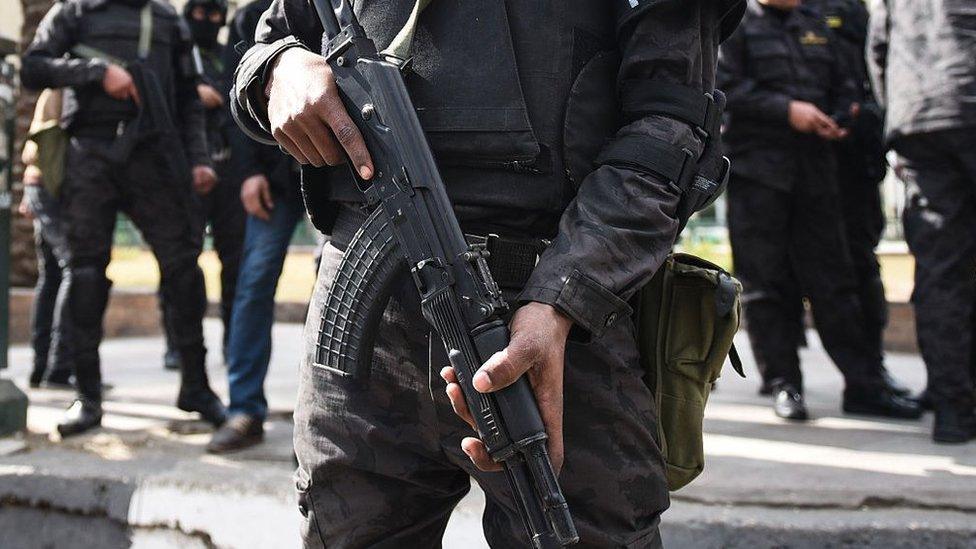Egypt security forces accused of covering up extrajudicial executions
- Published

The interior ministry says its forces opened fire in self-defence in the shoot-outs it reported
Campaigners have accused Egyptian security forces of killing dozens of alleged militants in extrajudicial executions then claiming the deaths occurred during "shoot-outs".
Human Rights Watch cited interior ministry statements as reporting 755 such killings between 2015 and 2020.
It examined the cases of 14 men, whose relatives said they died in custody.
The interior ministry has not commented, but its statements said its forces opened fire in self-defence.
They also said that most of those killed over the five-year period were sought for "terrorism" and that most belonged to the Muslim Brotherhood.
Thousands of members and supporters of the banned Islamist movement have been detained as part of a broad crackdown on dissent overseen by President Abdul Fattah al-Sisi since he led the military's overthrow of his predecessor, Mohammed Morsi, in 2013 following mass protests.
Ten years after protests in Egypt ousted then-President Hosni Mubarak, what has changed?
In a report released on Tuesday, external, Human Rights Watch says it reviewed interior ministry statements announcing the deaths of 755 people - and the arrest of only one suspect - in 143 alleged shoot-outs between January 2015 and December 2020.
The statements identified only 141 of those killed and provided very little detail, according to the report. However, almost of all of them said the alleged militants opened fire first, compelling security forces to return fire.
Families and acquaintances of the 14 men whose deaths in nine of the alleged shoot-outs were investigated by Human Rights Watch told researchers that they had been arrested and were in custody before they were reported killed.
Eight families said they saw what they believed were signs of abuse on the bodies of their relatives, including burns, cuts, broken bones, or dislocated teeth, according to the report.
Researchers also reviewed independent forensic analysis of photos and videos showing the bodies of five of the men, as well as pictures from the scenes of two of the alleged shootouts.
The reports says that in three cases the analysis was inconsistent with the shoot-out narrative, with the hands of three of the bodies apparently restrained or cuffed behind their backs before death.
"It is not possible to reach definite conclusions about the hundreds of killings in the scores of other alleged shoot-outs, given that the interior ministry rarely provides even the most rudimentary information, such as the names of those killed," Human Rights Watch said.
"But the conclusions drawn from the documented incidents demonstrate a clear pattern of unlawful killings and cast serious doubt on almost all reported 'shootouts'."